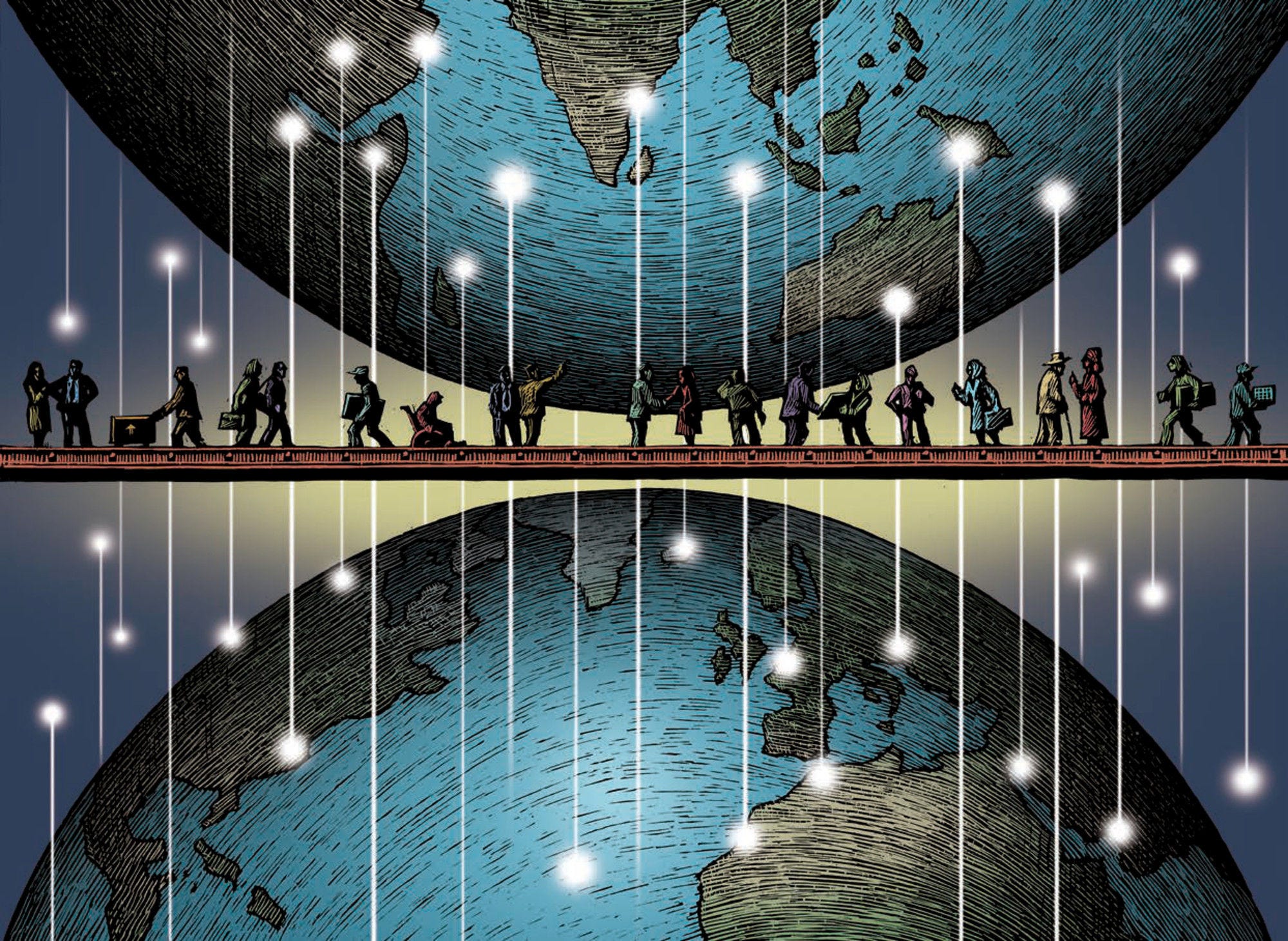In 2018, Denmark received 56 000 new immigrants on a long-term or permanent basis (including changes of status and free mobility), ‑1.6% compared to 2017. This figure comprises 54.9% immigrants benefitting from free mobility, 14.8% labour migrants, 17.6% family members (including accompanying family) and 3% humanitarian migrants. Around 8 900 permits were issued to tertiary-level international students and 5 800 to temporary and seasonal labour migrants (excluding intra-EU migration). In addition, 20 000 intra-EU postings were recorded in 2018, an increase of 30.4% compared to 2017. These posted workers are generally on short-term contracts.
Romania, Poland and Germany were the top three nationalities of newcomers in 2018. Among the top 15 countries of origin, Ukraine registered the strongest increase (300) and Poland the largest decrease (‑400) in flows to Denmark compared to the previous year.
In 2019, the number of first asylum applicants decreased by 24.3%, to reach around 2 600. The majority of applicants came from Syria (500), Eritrea (500) and Somalia (200). The largest increase since 2018 concerned nationals of Somalia (+55) and the largest decrease nationals of Georgia (‑300). Of the 3 100 decisions taken in 2019, 51.4% were positive.
A number of changes to the Danish Aliens Act entered into force in June 2019 to bring some flexibility to the recruitment of high-skilled labour migrants and other categories such as researchers and PhD students. To avoid companies being excluded from the fast-track scheme for two years in case of minor offences, it has been proposed to reduce the quarantine period to one year and to raise the fine. All labour migrants recruited under one of the fast-track schemes may now change positions within the same company without a new permit. Migrants in the short-term track may re-apply to stay as long as their total duration does not exceed 90 days. Migrants in the Pay Limit scheme can receive permits for a 30‑hour workweek (previously 37 hours) as long as they earn the required salary.
Danish immigration authorities are obliged to inform employers when a foreign national loses their grounds for residence and thereby their right to work. Holders of an establishment card, as well as international students who have applied for a renewal or first-time establishment card, may now access the labour market until they receive a decision on their application. Researchers may receive a job-seeking permit for six months after their work permit has expired.
From March 2019, municipalities are no longer obliged to assign housing to refugees on a permanent basis and may only provide temporary dwelling. As of July 2019, refugees can lose their residence permit or fail to renew it, if conditions in their home country improve. Since July 2019, refugees and persons reunited with them take part in a “self-support and return programme”, whereas other foreigners continue to participate in an “introduction programme”. In 2019, Denmark decided to resume the reception of quota refugees in 2020 and starting from 2019 to receive a smaller group of resettled refugees who – due to critical illnesses – requires immediate treatment.
In September 2019, Denmark decided to transfer the responsibility of registering asylum seekers from the National Police to the Danish Immigration Service in the Ministry of Immigration and Integration. From August 2020, a new return agency in the same ministry will handle rejected asylum seekers, including voluntary return previously also under the mandate of the National Police.
In October 2019, Denmark passed a law that introduces an access to administrative deprivation of Danish nationality for persons with dual nationality in case of serious prejudice to the vital interests of Denmark. In January 2020, automatic granting of Danish nationality to children born in conflict zones covered by an entry and stay prohibition was abolished.
Owing to the spread of COVID‑19, Denmark closed its borders with the exception of Danish nationals and foreigners authorised to enter by the national police on a discretionary basis. Voluntary return stopped and forced returns were severely limited, but processing of asylum applications continued. After a halt to all naturalisation ceremonies in March 2020, Denmark suspended the rule that future citizens must shake hands of the opposite sex in order to become Danish citizens in April 2020.
For further information:
www.uim.dk (in Danish)
www.integrationsbarometer.dk (in Danish)

